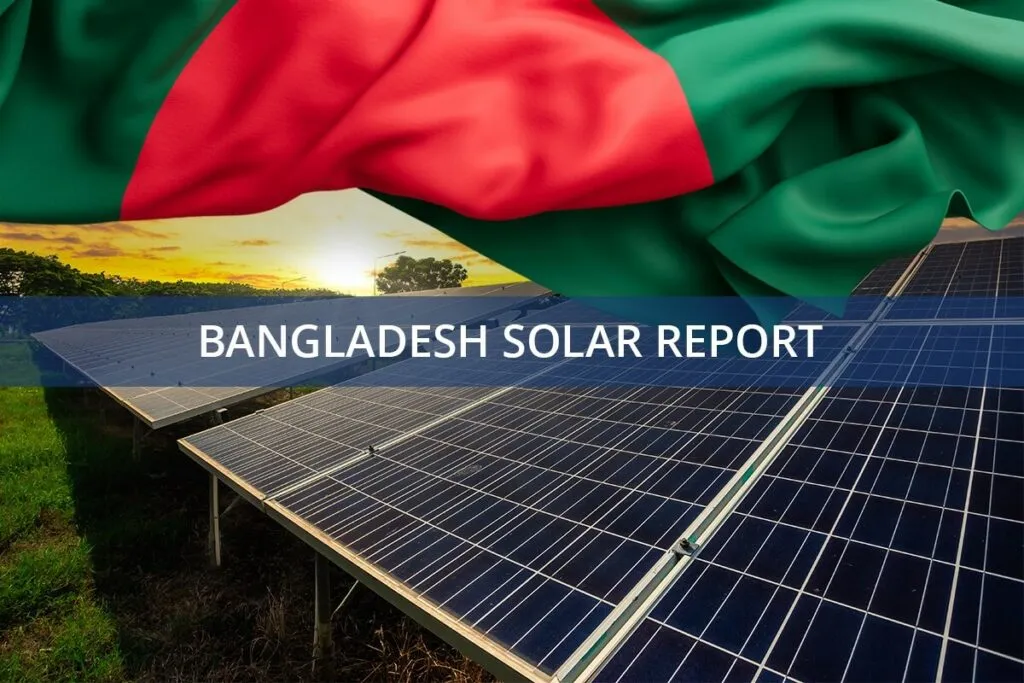In a significant move towards promoting renewable energy, Bangladesh has announced a drastic reduction in the import duty on solar panels. The tax has been cut from 37% to just 1% in the proposed budget for the fiscal year 2025-26. This decision is expected to boost the adoption of solar power across the country, aligning with global efforts to transition to cleaner energy sources.
Reduction of Bangladesh solar panel tax to 1%
The government has proposed a 1% duty on the import of PV modules, which are the main components of solar power systems. This reduction is aimed at encouraging the production and use of eco-friendly energy. The new tax rate will significantly lower the upfront costs, making it easier and cheaper for individuals and businesses to invest in solar power. This initiative complements the existing efforts to promote solar panels in Bangladesh.
Finance Minister AHM Mustafa Kamal announced the decision during a budget speech in parliament. He noted that the reduction in duties would substantially reduce the cost of solar power systems. This move is part of the government’s broader strategy to promote green energy and reduce reliance on fossil fuels, paving the way for a more sustainable energy mix.
The tax cut is expected to make solar power more affordable and accessible to a wider segment of the population. It will also support the government’s ambitious renewable energy target, contributing to the goal of increasing the share of solar energy in the country’s energy mix. Currently, solar power accounts for a small portion of Bangladesh’s total energy production, indicating significant room for growth.
Impact on Solar Power Systems due to Bangladesh solar panel tax
Industry experts have lauded the government’s decision. Masrur Md. Rahman, Vice President of the Bangladesh Solar and Renewable Energy Association (BSREA), praised the move, emphasizing that the reduction in taxes would help reduce the cost of solar power systems. This, in turn, would encourage more people and businesses to invest in solar energy, driving demand and fostering market growth.
Rahman noted that the solar power industry has been growing steadily over the past decade. However, high import duties on solar panels have been a major obstacle, increasing the overall cost and hindering wider adoption. With the new tax rate, the cost of solar power systems is expected to drop by around 20%, making solar power a more financially attractive option for consumers.
The government has also proposed tax exemptions for other components of solar power systems, such as inverters and lithium-ion batteries. These exemptions will further reduce the cost of setting up solar power systems, making them even more appealing to potential investors and homeowners. Understanding the raw materials that go into these components is crucial for assessing the long-term sustainability of the solar industry.
Boost to Renewable Energy with Bangladesh solar panel tax changes
The tax cut on solar panels is a critical component of Bangladesh’s broader push towards achieving its Bangladesh renewable energy target, aiming to generate 40% of the country’s electricity from renewable sources by 2041. Solar power is expected to play a key role in achieving this goal, and this policy change provides a significant boost to the sector.
The tax reduction is also a response to growing global concerns about climate change. Bangladesh is acutely vulnerable to the impacts of climate change, making the transition to renewable energy sources a national priority. By promoting renewable energy, the government hopes to reduce greenhouse gas emissions and build a more sustainable energy system, mitigating the adverse effects of climate change.
The government’s decision to reduce taxes on solar panels is expected to have a positive impact on the economy, stimulating growth and creating opportunities. It will create new jobs in the renewable energy sector and attract both domestic and foreign investment. The move will also help reduce the country’s dependence on imported fossil fuels, improving energy security and reducing the strain on foreign exchange reserves.
Challenges and Future Prospects of Bangladesh solar panel tax
Despite the positive impact of the tax cut, there are still challenges to overcome in the manufacturing process. The solar power industry in Bangladesh is still in its early stages, requiring further development and support. The country needs to invest in the necessary infrastructure and technology to support large-scale solar power projects, ensuring reliable and efficient energy generation.
Additionally, the government will need to create supportive policies that encourage the use of solar power, such as incentives for businesses and households to install solar power systems. Public awareness campaigns and educational programs can also play a crucial role in promoting the benefits of solar energy. Furthermore, the government will need to work with international partners to secure funding for renewable energy projects, leveraging expertise and resources to accelerate the transition to clean energy. Understanding the basics of manufacturing solar panels will help in addressing these challenges.
The tax cut on solar panels is undoubtedly a major step forward for Bangladesh’s renewable energy sector. It will help reduce the cost of solar power systems and make them more accessible to the public, driving adoption and fostering a cleaner energy future. However, the government must proactively address the challenges facing the solar power industry to ensure its long-term growth and sustainability. Consider exploring our free E-Course to learn more about solar panel manufacturing and its impact on the renewable energy sector.



